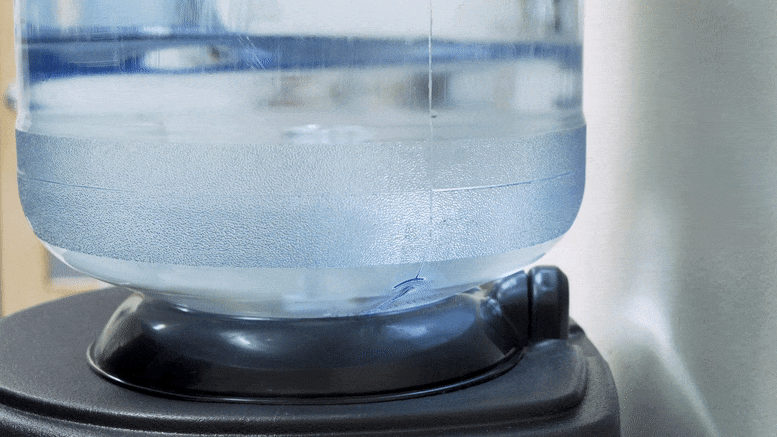
Watercoolers can release organophosphate esters like TCIPP into drinking water through their plastic and tubing parts.
Watercoolers have become a staple in homes, offices, and schools, but their tanks and parts are made of materials that could release unwanted or potentially harmful compounds into drinking water. In a preliminary study, researchers in ACS’ Environmental Science & Technology Letters report that organophosphate esters (OPEs) were found in water dispensed from these systems, but they estimated that daily consumption would be far below the levels associated with health problems.
As drinking water from freestanding dispensers has become wildly popular, some concern has been raised about the quality of the water coming out of these systems. For example, OPEs have been found in various types of drinking water, including tap, well, and bottled water, in some locations in the U.S., South Korea, and China. These compounds are used widely worldwide, replacing harmful brominated flame retardants and as additives in plastics, and now researchers are finding that OPEs are also associated with poor health outcomes. Because these substances are applied to materials or used as additives, which are not strongly bonded to plastic polymers, they can easily contaminate dust or leach into water. So, Yali Shi, Guangshui Na and colleagues wanted to see if water dispensers could contribute to OPE exposure, estimating the amount someone would consume on a daily basis if they only drank water from these types of systems.
The researchers collected water from 53 water dispensers in office buildings in China, both from the storage tanks and dispensed through room temperature and hot water taps. They analyzed the samples for 22 OPEs and detected eight of them in the majority of samples, with tris (2-chloroisopropyl) phosphate (TCIPP) being the most abundant. The water dispensed from the hot and room temperature taps had higher amounts of these compounds than water held in the tanks. Upon closer inspection, the researchers found that the plastic dispenser and the tubing contained these compounds, and the tubing could accumulate OPEs from the air. Finally, the team calculated that if people drank water dispensed solely from these systems, their total daily exposure to TCIPP — a potential carcinogen and endocrine disruptor — was far less than is considered to cause harm to humans. The researchers say that while their study was small, it identifies a need for future research to examine whether silicone is the most suitable tubing material for watercoolers.
Reference: “Increased Human Exposure to Organophosphate Esters via Ingestion of Drinking Water from Water Dispensers: Sources, Influencing Factors, and Exposure Assessment” by Minmin Hou, Yali Shi, Guangshui Na, Zongshan Zhao and Yaqi Cai, 1 September 2021, Environmental Science & Technology Letters.
DOI: 10.1021/acs.estlett.1c00592
The authors acknowledge funding from the National Key R&D Program of China and the National Natural Science Foundation of China.
Never miss a breakthrough: Join the SciTechDaily newsletter.